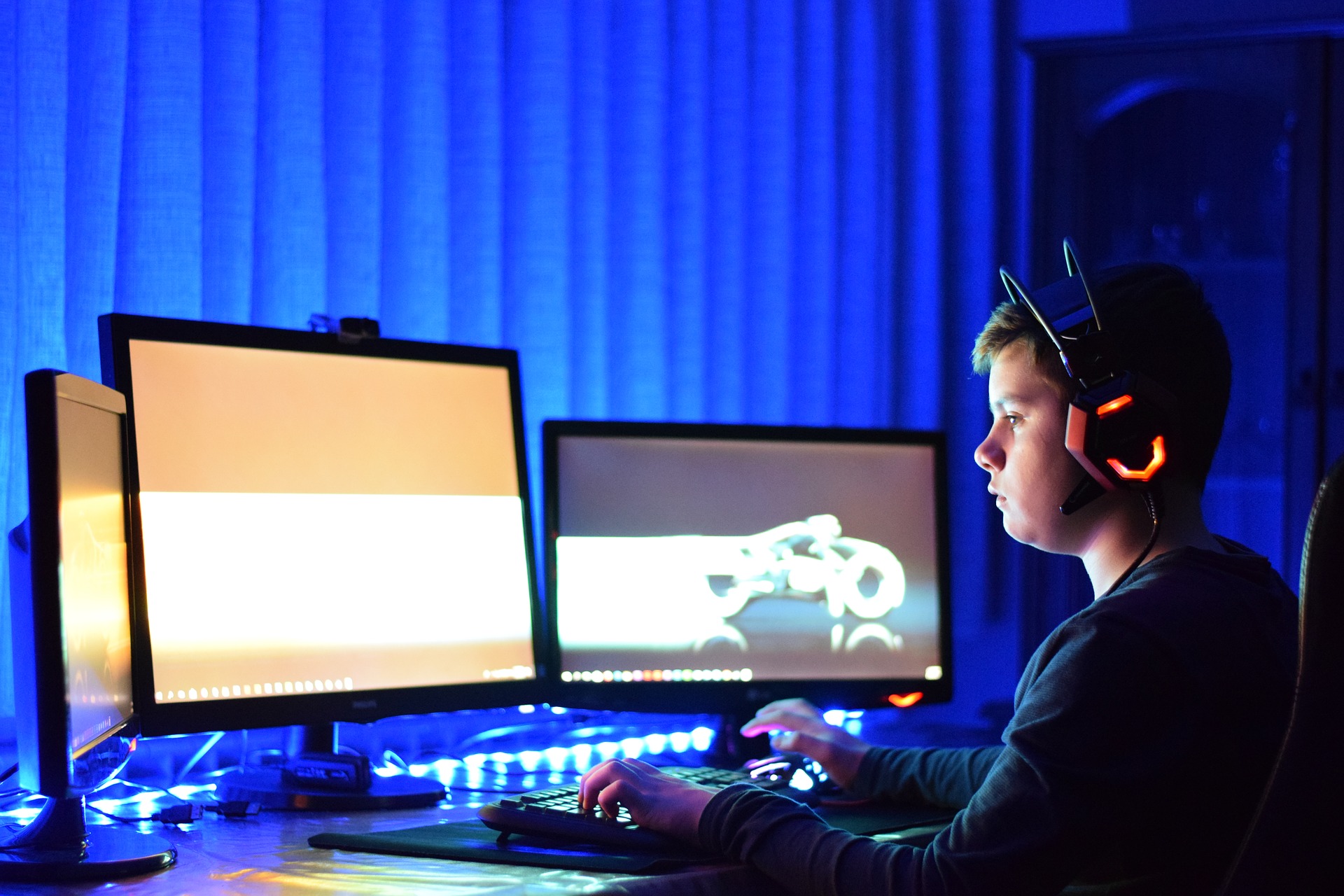There are plenty of good things to be said about blue light, a high-energy type of light that exists on the spectrum just beyond ultraviolet light. (These wavelengths are emitted by the sun as well as electronics and some modern lightbulbs.) Moderate daytime exposure helps keep us alert as we go about our daytime tasks, improves reaction times, boosts mood, and supports our body’s natural sleep-wake cycles.
Troubles, arise, however, when our exposure to blue light continues into the evening. And thanks to the widespread use of TVs, phones, tablets, laptops, and fluorescent and LED lightbulbs (all of which emit blue light), more and more of us are soaking up these wavelengths in the hours leading up to bed.
That nighttime exposure can have serious ramifications for our overall wellbeing. Here are four reasons to reduce your blue light exposure once the sun goes down.
It can cause eye strain.
Prolonged exposure to blue light each day may provoke temporary eye strain characterized by blurry vision, difficulty focusing, dryness, soreness, stinging, and/or a burning sensation. This is primarily because our eyes don’t blink as frequently when we’re looking at digital devices, which means the protective tear film on our eyes dries up more quickly than when we aren’t looking at screens.
More research is needed to determine the long-term consequences of blue light exposure, but early animal studies suggest excessive exposure to blue light over the long-term may result in some damage to the retina.
It can provoke headaches.
A common consequence of eye strain is that it can cause headaches, which helps explain why headaches may result from blue light exposure. Some people also experience headaches as a result of prolonged blue light exposure even if they don’t exhibit other symptoms of eye strain.
It can interfere with sleep.
One of the most concerning consequences of blue light exposure is that it can interfere with a person’s ability to fall and stay asleep at night.
Research suggests evening and nighttime exposure to blue light can suppress the secretion of melatonin, which is a chemical the body uses to regulate sleep-wake rhythms. This disrupts our biological clock and makes it harder for our bodies to recognize when it’s time to go to sleep.
Even if we are able to fall asleep, evening exposure to blue light may increase the chance of waking up during the night. All told, exposing ourselves to blue light in the hours leading up to bed significantly increases the risk that we’ll experience poor sleep quality.
Sleep deprivation, in turn, brings its own host of negative consequences. Not getting enough sleep has been linked to irritability, reduced creativity, diminished productivity, decreased immune system function, and impaired memory, concentration, and problem solving skills. Frequent sleep deprivation is also linked to an increased risk for a variety of chronic illnesses.
It may be linked to serious health conditions.
While this research is still preliminary, there’s some evidence to suggest nighttime exposure to artificial light may provoke inflammation (which is a known contributor to a host of chronic diseases) and increase the risk of depression, heart disease, weight gain, metabolic diseases, diabetes, and even cancer. While this may be due in part to the sleep deprivation described above, there’s also evidence these consequences may exist separately from those linked to poor quality sleep.
Limiting Your Exposure to Blue Light
So if nighttime blue light exposure is no good, what can health-minded people do to combat it?
It might seem obvious, but one of the most effective strategies for minimizing the potential damage caused by blue light is to simply limit your exposure. For instance, many experts recommend turning off all electronics and dimming the lights in the hours leading up to bedtime. You might also consider switching to red lights (which have a longer wavelength than blue lights) during the evening.
Several other strategies may also help combat the deleterious effects of blue light. For example:
- If you work at a computer, it’s a good idea to look away from the screen for at least 20 seconds approximately every 20 minutes.
- Some people report benefits from using blue light blocking apps or blue light blocking glasses at night and/or while using digital devices.
- Expose yourself to plenty of natural light during the day. This helps reinforce your body’s natural circadian rhythms, which makes it easier to fall and stay asleep at night.
Bottom line on blue light? Daytime exposure (especially in the form of natural sunlight) is important. But once dusk sets in, it’s a good idea to limit the time you spend around these potentially harmful wavelengths.


